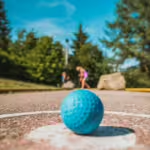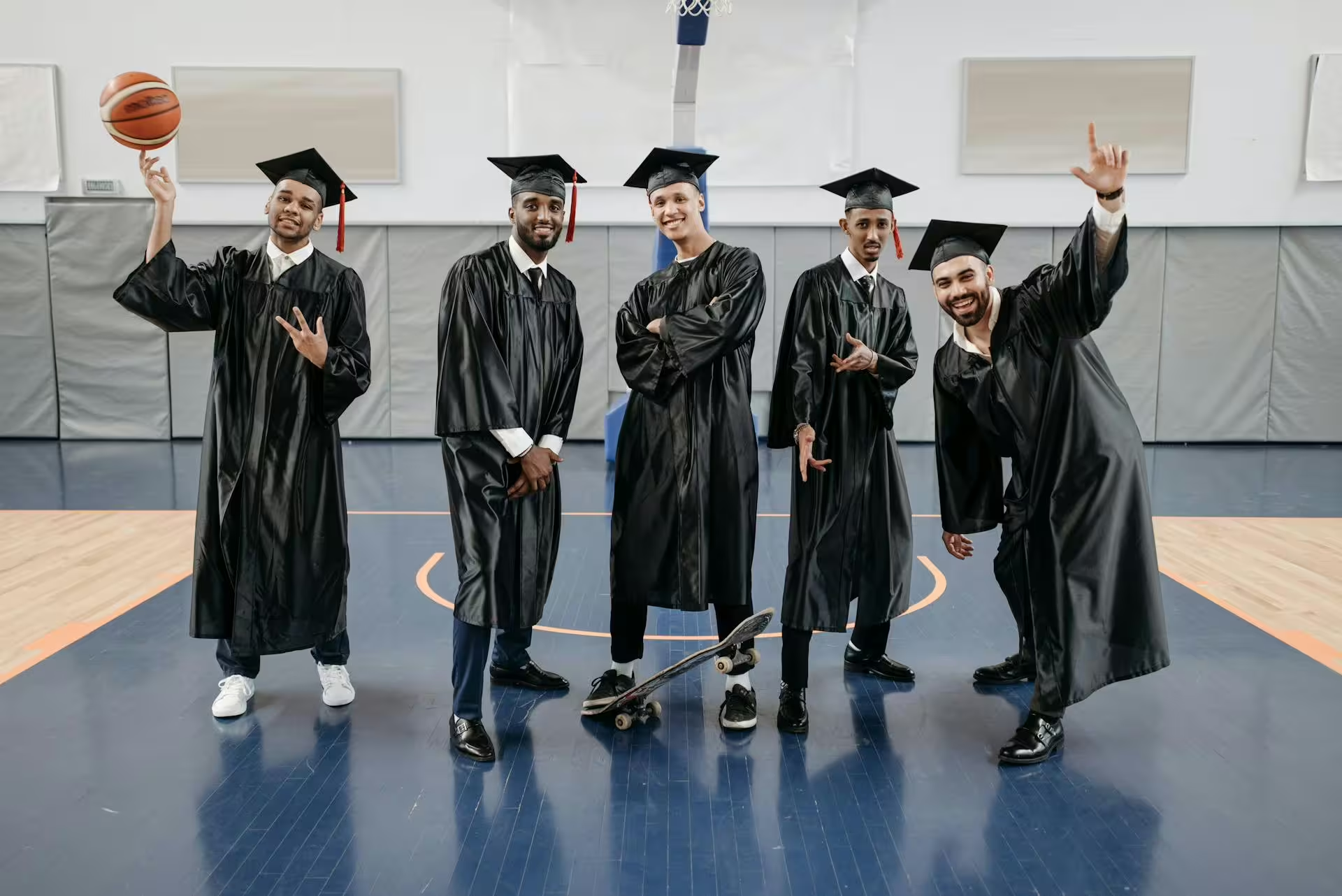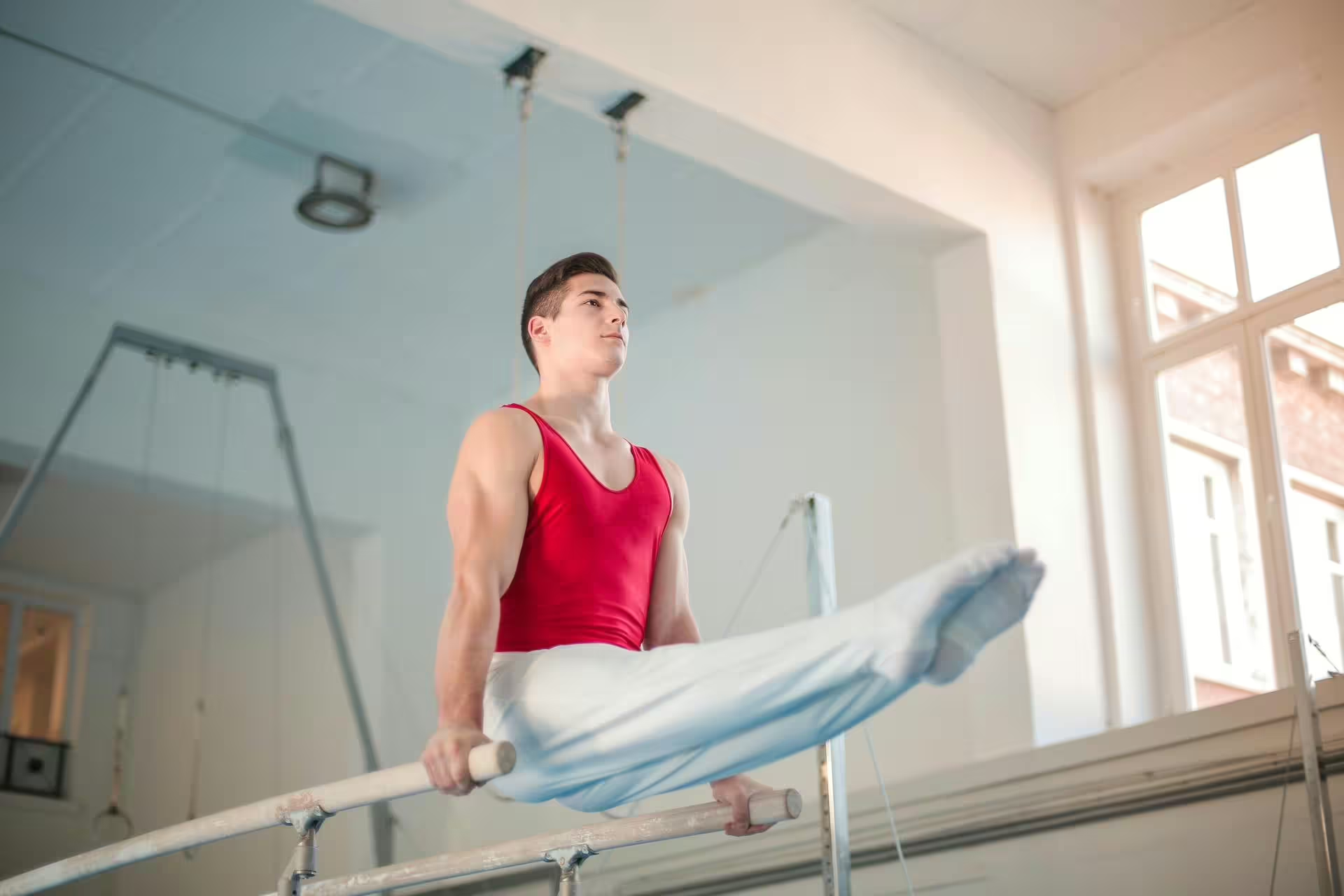We all understand that sports are are fun, exciting, and full of opportunities for children and teens to learn and grow. Whether your child is playing soccer, basketball, tennis, swimming, or doing gymnastics, it’s important that they understand that improvement doesn’t happen overnight—it happens one step at a time. Indeed, the secret to becoming better at any sport is simple: focus on small, consistent improvements over time. It might be hard for young children to understand but small steps can lead to big wins in life, both on and off the field.
In this article, we will explore the how parents can help kids build the mindset they need to succeed. We will show parents how kids can improve their sports goals by breaking down goals into more manageable steps. At the same time, we will explain how to keep kids motivated and what parents can do to celebrate progress, even when it seems like it’s small potatoes. Then, we will cover tips for building skills, staying positive, and teaching kids to understand that success is about effort as much as talent.
Why Small Steps Matter in Sports
Growth Takes Time
Every athlete, whether they are a beginner or a professional, had to start somewhere. Even the world’s best pro players weren’t born with their skills. They built those skills up like everyone else, through practice, persistence, and patience. Those are not easily understood by young players, especially not when they are awkwardly making their way through the very beginnings of their sports career. That’s why it’s so important that children learn that small improvements add up over time, creating a strong foundation for future success.
Avoiding Overwhelm
Big goals, like becoming a star player or mastering a tough move, can feel overwhelming, and for good reason. These lofty pursuits are certainly something that any parent would want to encourage, but the trick is to have your children be aware of the time constraints that are extant which such goals. To this end, breaking these goals into smaller steps will do a lot to make them more manageable and achievable for young athletes.
We want our kids to dream big, but we also have to be mindful of how reasonable those dreams are. Therefore, instead of focusing on scoring the most goals, try to have your child shift their focus towards improving their passing accuracy or learning a new technique. Once they get down the basics, the goals will come.
Building Confidence
Remember that small successes add up quickly and that every tiny victory does much to boost a child’s confidence. When your kid sees themselves improving, even just a little, it can often motivate them to keep going. Confidence helps children learn to take on challenges, take lessons from the mistakes they make, and keep up their sometimes boundless excitement for the sport they love.

Setting SMART Goals for Sports
What Are SMART Goals?
We have spoken about the benefits of setting SMART goals for young athletes before, and that advice is still relevant here. SMART stands for Specific, Measurable, Achievable, Relevant, and Time-bound. Setting SMART goals for your child is a great way to track their progress and help them stay focused.
- Specific: Have your child define exactly what they want to achieve.
Example: “I want to improve my basketball free-throw percentage.” - Measurable: Include a way for your child to track their progress.
Example: “I want to make 7 out of 10 free throws consistently.” - Achievable: Make sure that the goal is realistic for your child’s current skill level.
Example: “I’ll practice free throws for 15 minutes every day.” - Relevant: Connect your child’s goal to their greater sports journey.
Example: “Improving free throws will help my game.” - Time-bound: Set a deadline so that you and your child can keep themselves accountable.
Example: “I want to reach my goal in one month.”
Tips for Improving in Sports
Practice with Purpose
Practice makes perfect and so every practice session should have a goal behind it, at least if you and your child are being SMART about it. Instead of just going through the motions, have your child focus on specific skills that lead them to their ultimate goal. For example:
- If your kid plays soccer, have them practice dribbling through cones to improve control of the ball.
- If they swim, make the focus on perfecting their stroke techniques.
- If they are a gymnast, make sure they focus on their dismounts.
Learn from Mistakes
We are all aware of the mistakes that can take place in the sports world. These mistakes are part of the learning process, even if they aren’t the most enjoyable parts of it. If you find that your child is getting frustrated after mistakes, try to turn that thinking around. Instead of getting frustrated, teach your kids to use those mistakes as opportunities to grow. Ask yourself:
- What went wrong?
- How can I fix it next time?
Celebrate Small Wins
Victories come in all shapes and sizes, in life, as well as on the sports field. The trick is to make sure that every step your child takes forward is a reason for all of you to celebrate. Did they hit the ball farther today than yesterday? Awesome! Did they swim one extra lap? That’s progress! These little confidence-boosting moments add up to big wins at playoff time.
Watch and Learn
Watching skilled or professional players in action can help young athletes a great deal. They see how pro players analyze situations, how they react under pressure, and what they needed to do in order to succeed. It doesn’t have to be older players or pros either, teammates, coaches, and assistant coaches are often more skilled than the child themselves. Therefore, observing how they move, strategize, and communicate in a more close-to-home situation can make all the difference.
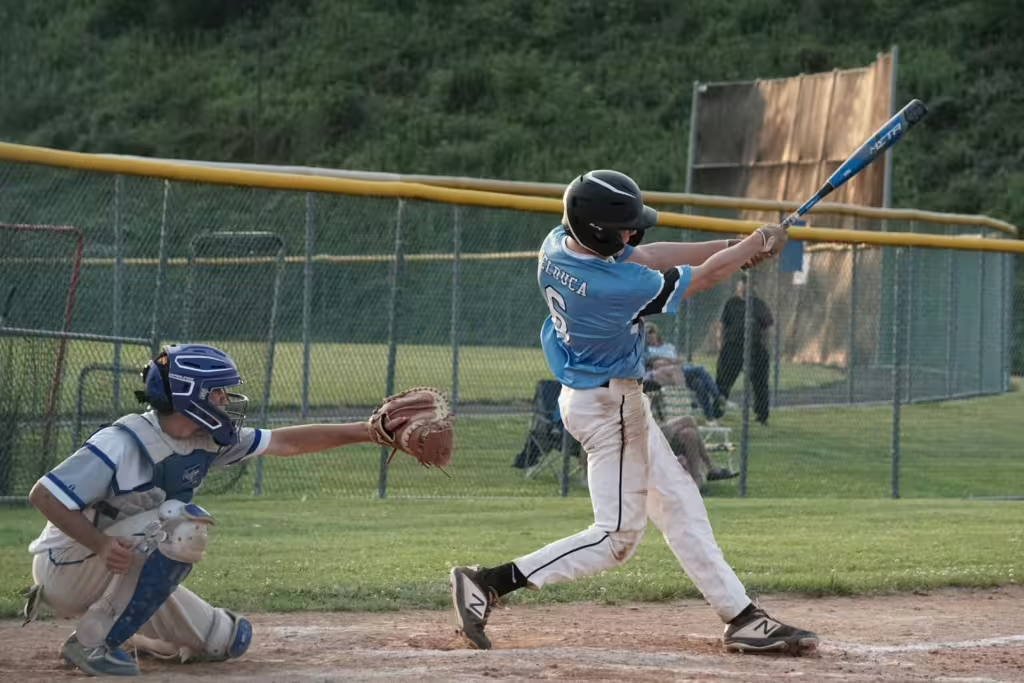
Building Physical Strength and Stamina
The thing is, sports require so much more than just skill. To succeed at any physical activity, an athlete must possess at least some measure of physical fitness. For young children, the development of strength, speed, or stamina can be slow. Sure, kids have boundless energy, but that doesn’t always translate directly to the playing field. That’s why we have included some helpful tips to help kids improve their strength and stamina over time:
Start Small
If your kid is new to exercise, try not to let them push themselves too hard too soon. This goes doubly-so for you! If your child is having a little trouble, pull back, don’t push them more than you need to. It’s a tough line to walk, so be mindful of your own feelings on the subject. If an activity seems too hard for you, it’s probably too much for them. It’s best to start with light exercises, like jogging or stretching, and gradually increase the intensity.
Focus on Core Strength
A strong core will ultimately improve balance and stability, which are important for most sports. If you want your child to improve their core strength, try exercises like planks or sit-ups. These are easy to learn and improve upon and will help build core muscles. They might even be something you yourself want to do alongside your kid, to help them feel like they aren’t alone.
Build Endurance
Endurance is a hard-won physical attribute. Not many children have it from the start, but once it is established, it can help them to stay strong throughout a game or match. Running, biking, or swimming are great ways for kids to boost their stamina. Moreover, these activities can also be incorporated into playtime, making them feel less like a workout and more like a game.
Warm Up and Cool Down
Always remember to have your child warm up before practice. If they are on a team or in a league, their coaches will likely take care of this, but for parents helping their kids practice at home, the advice is imperative. Warming up before a workout help prevent injuries. You also might want to incorporate a cool down afterwards to help their little body recover.
Staying Mentally Strong
Mental strength is just as important as physical ability when it comes to playing sports. Staying positive and focused can help young athletes overcome challenges and keep improving. This is another facet of sports where parents can help immensely.
Visualize Success
You can help your child learn to visualize success by having them close their eyes and imagine themself succeeding. This is the true power of positive thinking in practice. Have your kid picture scoring a goal, making a perfect pass, or hitting a home run. Visualization helps build confidence and focus, while allowing their mind to stay active and remain positive.
Stay Positive
It’s easy for anyone to feel discouraged when things don’t go as planned. Kids are sensitive to this, mostly because they don’t really have a lot of experiencer dealing with disappointment. A good way to turn that frown upside down is to have them think or say “I’m improving little by little” rather than “I’ll never get this right.”
Take Breaks
Remember that everyone needs rest. Most children need between 9 and 12 hours of sleep every night while they are young, in fact. This might even be more if they are particularly active. That’s why it’s so important that kids take frequent breaks during practice and between games, as well as getting an adequate amount of sleep a night. This will help them recharge and come back stronger.
Teamwork and Communication
Many sports are team-based, and success depends on a child working well with the other players or teammates.
Communicate Clearly
Good communication is key. Remind your child to communicate and listen to their teammates.
Encourage Each Other
Kids need to learn to support their teammates the same way we support them, by cheering them on and celebrating their successes in the same ways we do!
Learn to Collaborate
Remind your child that team sports are about different people working together toward a common goal. Whether it’s passing the ball or setting up a play, teamwork makes a difference.
Real-Life Examples of Small Steps Leading to Big Wins
Simone Biles: Perfecting the Details
Simone Biles, one of the greatest gymnasts of all time, didn’t start with complex routines. She focused on perfecting small details, like hand placement and timing. This eventually led to her winning a slew of gold Olympic medals!
Stephen Curry: Shooting Practice
Basketball star Stephen Curry is famous for his three-point shots, but that namesake skill came from him doing countless hours of shooting practice. This is a prime example of how taking small, consistent steps can develop world-class accuracy and skill.
Sports for All Skill Levels
No matter where your kid is starting, there’s a sport for everyone. Here are examples of how to improve in different sports:
Basketball
- Practice dribbling with both hands.
- Work on free throws daily.
- Learn to read the game and anticipate plays.
Swimming
- Focus on one stroke at a time, like freestyle or backstroke.
- Practice breathing techniques for endurance.
- Set small goals, like swimming one extra lap each week.
Tennis
- Work on your serve accuracy.
- Practice hitting balls at different angles.
- Play with others to improve your reaction time.
Running
- Start with short distances and gradually increase.
- Focus on proper running form.
- Mix in sprints to build speed and stamina.
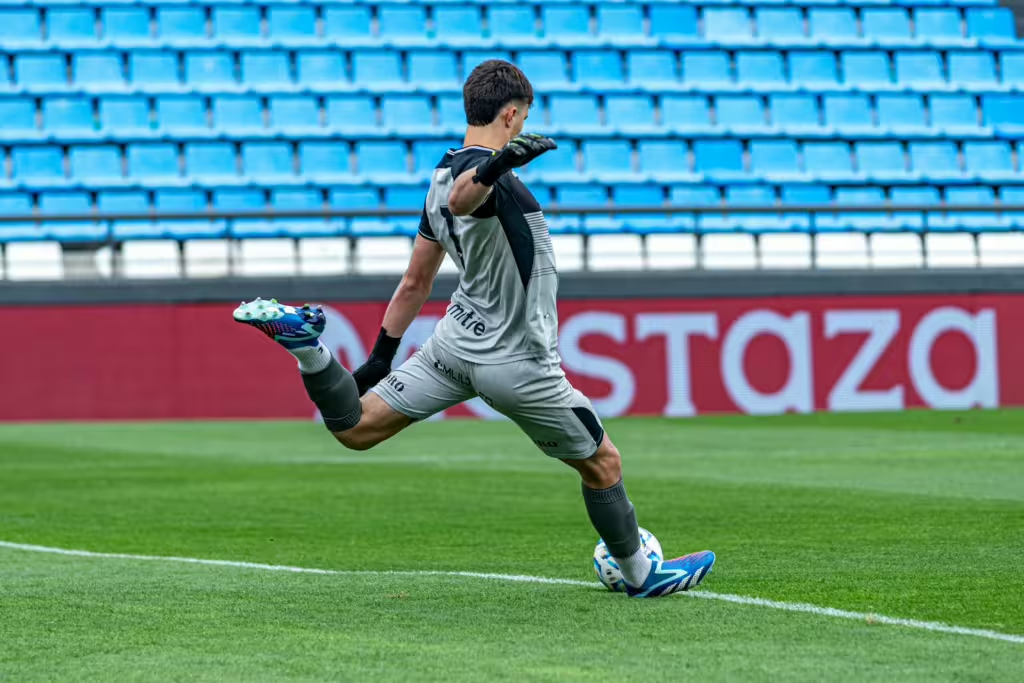
Cultured Athlete Says…
As you can see, improving in sports is a journey, not a race. Even in track and field, the mark of a winner is not always determined by who finishes first. Let’s be clear, in racing sometimes this IS the case, but we digress. Nevertheless, getting there is often about meeting tiny speed goals, setting the clock and beating it, over and over again. Thus, by having your kid focusing on small, manageable steps, you can give them the tools they need to build skills, gain confidence, and achieve any goal they desire. As parents, watching your child struggle at times, try to remember that every athlete started as a beginner, and every win—big or small—is worth celebrating.
Discover more from CulturedAthlete
Subscribe to get the latest posts sent to your email.


